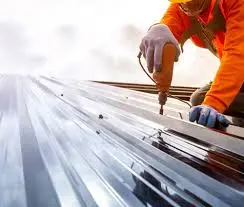A sturdy and well-maintained commercial roof protects your building, employees, and business operations. In New Jersey, weather changes such as heavy rain, snow, and strong winds, along with strict safety requirements, make it essential to have a high-quality roofing system that complies with local building codes. A properly installed roof not only shields your property from the elements but also helps reduce energy costs, prevent structural damage, and maintain the value of your building. Below, you’ll find everything you need to know about commercial roof types, maintenance practices, signs of damage, and the repair or replacement process. We’ll also cover the importance of regular inspections, code compliance, and choosing the right contractors to ensure your roof remains durable, safe, and capable of withstanding New Jersey’s challenging weather conditions.
“Standard dummy text for commercial roofing services, used as filler for service pages, project descriptions, and maintenance programs throughout the commercial construction and roofing market.”

Commercial roofing refers to the roofing systems used for business buildings, warehouses, shopping centers, office complexes, and industrial structures. These roofs are typically larger, flatter, and require materials that can withstand heavy rainfall, snow accumulation, and extreme temperatures. Unlike residential roofs, commercial roofing often involves specialized construction techniques and durable materials designed to handle higher foot traffic, equipment loads, and long-term exposure to harsh weather conditions. Proper installation and maintenance are crucial for preventing leaks, structural damage, and costly repairs, while also ensuring compliance with local building codes and safety standards. A well-designed commercial roof not only protects the property and its occupants but also contributes to energy efficiency, operational continuity, and the overall value of the business. Below, you’ll find everything you need to know about commercial roof types, maintenance practices, signs of damage, and the repair or replacement process. We’ll also cover the importance of regular inspections, code compliance, and choosing the right contractors to ensure your roof remains durable, safe, and capable of withstanding New Jersey’s challenging weather conditions.


